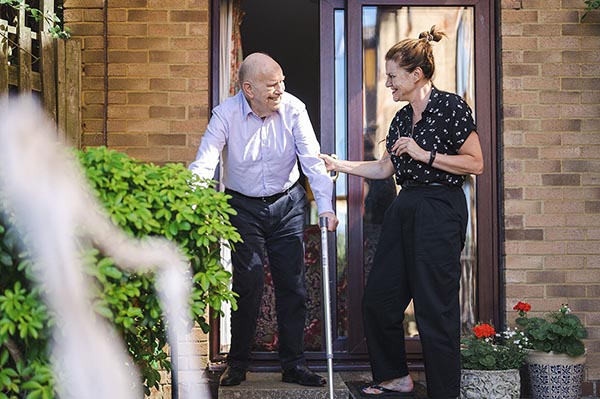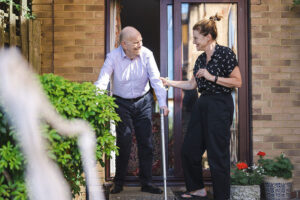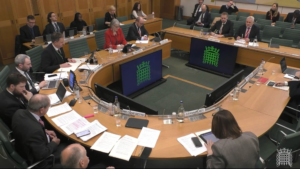Rather listen? Simply hit the play button and listen to the article in full
- What's to be done about social care? 00:00
We were hopeful, when the Government announced the appointment of Baroness Casey to conduct a wide-ranging review of national Social Care provisions in England, that the Government were at long last willing to tackle the need for a new national framework to deliver, working collaboratively with the NHS. Unfortunately, the proverbial can seems to have been kicked into the long grass yet again – perhaps because the politicians of all political stripes know that social care is likely to be too costly and too difficult to fix easily, and that it is not ‘popular’, or necessarily seen to be a vote winner!
The Casey Commission’s Terms of Reference have now been published (Independent commission into adult social care: terms of reference – GOV.UK) but we will probably have to wait for Louise Casey’s interim report next year to get the measure of the direction she will take this in.
On a more positive note, at a recent meeting of the Care and Support Alliance CEOs, we got to meet two of the newly appointed members of Baroness Casey’s review team. The CSA is exploring the possibility of providing the vehicle for the Commission’s engagement programme, which would place CSPA as an affiliate of the CSA, in a solid position of influence. Very little is known at this stage about the budget Louise Casey will be given for her review and any programme of public and stakeholder engagement – but it is thought that the cost of the recent ‘national conversation’ on the NHS 10 Year Plan at the tail end of 2024 ran into the millions, so it will need to be substantial.
We share the concerns of others in the sector about the mess that some Local Authorities are making in procuring adult social care – with contractual horror stories circulating about situations where a lot of time and money is being wasted unnecessarily on contractual disputes and legal challenges. This is possibly due to a general lack of competence, or lack of resources, affecting some of those in local government who are responsible for the procurement of social care from local charities and commercial providers, large and small.
There are gaps opening up between providers as well, as the costs of providing services frequently outweigh the amounts local authorities can afford to pay for them. Larger commercial providers have more leverage when it comes to demanding extra cash in such cases (wielding the threat of the possible eviction of those in local authority sponsored residential care) whilst charities and smaller businesses may be less unable to do this. This leaves charities and smaller, more local care providers facing the prospect of imminent closure or simply having to hand back LA contracts. The Care and Support Alliance organisations are working together to find positive ways to address this unsustainable situation through collective and collaborative working between charities and other providers.
We are working with other partners in the sector to identify ways to raise the profile of adult social care on the public and political agenda, as stories of the sector being in a perpetual state of crisis are just not doing the trick. Whilst the NHS always prompts a “cheer” in the House of Commons and equally in the local pub (!), somehow the social care system doesn’t attract this same public affection and is not seen as a ‘vote winner’ in the same way. Frankly, most people would rather not think about adult social care at all until they, or their loved ones, are in need of it, by which time they are often too ill, too stressed out or too exhausted to campaign for improvements! It took the COVID pandemic to make care homes headline news, but how to keep them on the radar post-pandemic is a big challenge…
The Dilnot Report’s recommendations, published 14 years ago in 2011, are now thought to be outdated and no longer fit for purpose, so there’s no point in going back to them. There is still the issue of people understandably wanting to hang on to their homes to give their children and grandchildren an inheritance, without which they may have little chance of establishing themselves as homeowners, etc. However, the state simply cannot afford to pay for everything…
Louise Casey is to be independent of the Department of Health & Social Care and is answerable to the PM directly. She has a formidable reputation for speaking truth to power, no matter how unpalatable this may be, so let’s see. The trouble is that her final recommendations are not due to be delivered until 2028, let along being implemented, so we are likely to be waiting for any fundamental changes for a very long time.
In the more detailed analysis of the Spending Review, compiled by our parliamentary advisors, Connect, they say –
The DHSC can be considered one of the winners of the Spending Review, with average annual real growth for resource spending at 2.8%. However, this is below the historical average, and capital spending remains flat in real terms.
While the £4 billion funding for adult social care may allow the sector to keep up with demand, there are concerns that this may not be enough to drive through longer-term reforms.
The Spending Review allows for an increase of over £4 billion in funding for adult social care in 2028-29, when compared to 2025-26. This increase will be key to Baroness Casey’s commission into adult social care, with the terms of reference making clear that it will make its recommendations within the fiscal constraints set out in the Spending Review.
Prior to the Spending Review, the Health Foundation said at least £3.4 billion would be needed to meet growing demand in social care by 2028-29. While this has been met, the same report also said that £6.4 billion would be needed to improve access to care and £8.7 billion to boost pay.
We will need to keep mobilising the impressive lobbying power of pensioners, as demonstrated by the Government’s U-turn on Winter Fuel Payments, to keep the need for national improvements in the provision of social care services on the Treasury’s agenda.











